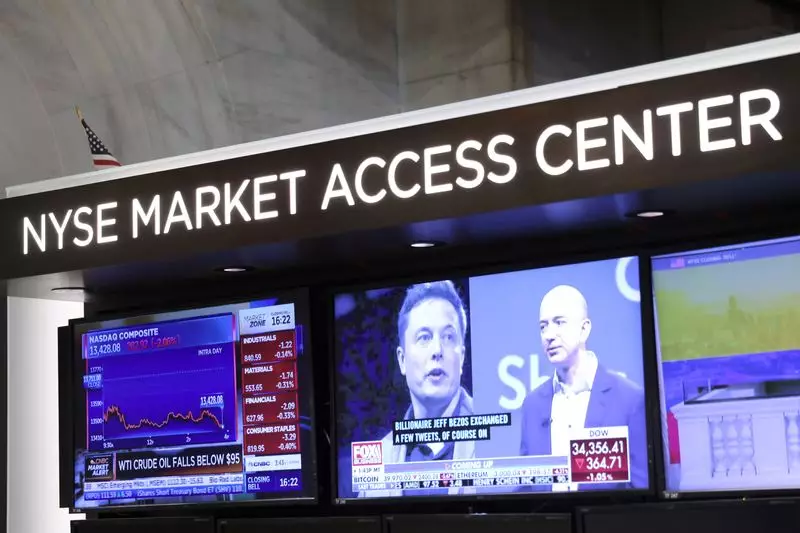As the new administration prepares to take office, the dynamics of the commercial space industry are at a critical juncture. Jeff Bezos, the founder of Blue Origin, expressed a sense of optimism regarding the impact of political relationships on the competitive landscape of space exploration. Bezos has endeavored to convey confidence that Elon Musk, the CEO of SpaceX, will not utilize his close ties with the incoming administration under President-elect Donald Trump to destabilize Blue Origin’s standing in the industry. Through an interview at Cape Canaveral, Florida, Bezos emphasized the integrity of Musk’s intentions, noting that he perceives Musk as genuinely committed to the public good rather than self-serving interests.
At the heart of this discussion lies the impending launch of Blue Origin’s New Glenn rocket, a substantial 30-story structure designed to enhance the company’s influence within the satellite launch sector. With expectations that this debut will serve as a competitive leverage against SpaceX’s established market access, Bezos remains hopeful that Blue Origin will finally gain traction within the space sector, which has been a long-term ambition since the company’s founding in 2000. This launch promises not just a technological milestone but also represents a pivotal moment that could shift market dynamics significantly in favor of Blue Origin.
The conversation soon pivots to the philosophies underpinning America’s broader space exploration goals. Elon Musk has publicly advocated for prioritizing Mars missions, igniting apprehension among industry players concerning potential shifts to NASA’s plans aimed at lunar exploration. However, Bezos articulates a distinct vision, arguing for a dual approach that embraces both lunar and Martian initiatives. He warns against halting progress, advocating for continuity in current lunar endeavors while looking ahead to Mars as a complementary goal. This perspective highlights the complexities involved in space policy, suggesting that thoughtful planning is essential for sustained innovation and progress.
Furthermore, the intricate relationships between private industry and politics cannot be overlooked. Bezos’s Amazon has made significant financial contributions to Trump’s inauguration, indicating a nuanced entanglement of corporate interests and political influence in shaping space policy. Nevertheless, Bezos has clarified that while he has engaged with Trump, discussions have not specifically addressed space initiatives, underscoring a potential disconnect between corporate strategy and governmental priorities.
As Blue Origin prepares to officially challenge SpaceX’s market position, the intertwining of political relations and commercial aspirations may shape the future of space exploration. The emphasis on collaborative goals—rather than divisive competition—could ultimately define the trajectory of human endeavors beyond Earth, particularly as both companies navigate the complexities of an evolving political landscape. The aspirations of these visionaries, embodied in their pioneering projects, suggest that the future of space travel hinges on collaborative innovation rather than rivalry.

